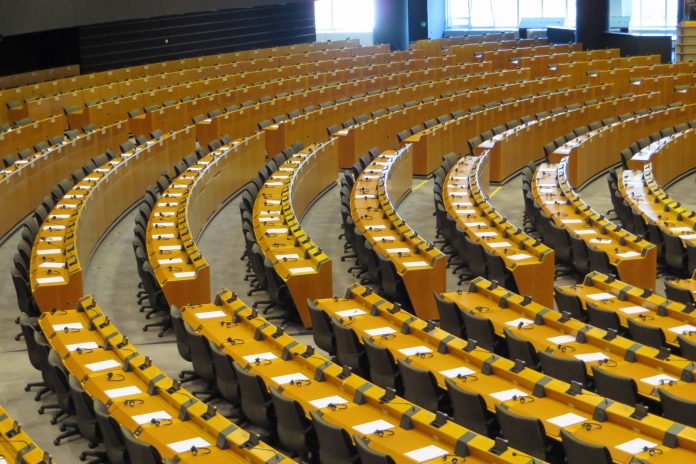The European Economic and Social Committee (EESC) has adopted its position on the EU’s economic priorities for 2021. It welcomes the steps taken in the strategy to address the challenges of the COVID-19 pandemic in the context of the European Green Deal, but is disappointed that the strategy proposed by the European Commission devotes too little attention to social issues. It also warns against phasing out support measures too early and advocates establishing new fiscal rules that will reflect social and economic realities after the pandemic.
The EESC is disappointed that the economic strategy proposed by the Commission, this year also complemented with guidance on the implementation of the Recovery and Resilience Facility, pays little attention to social issues. On the one hand, this approach will not lead to the consistent and long-awaited implementation of the European Pillar of Social Rights. On the other, it will endanger the just transition towards a green and digital economy. The transition, notes the EESC, must not result in a further increase in poverty and in greater social exclusion. This concern is reflected in one of the conclusions adopted by the EESC on 24 February in its opinion on The Annual Sustainable Growth Strategy 2021. Krzysztof Balon, rapporteur for the opinion, said: “It will be crucial to ensure balanced distribution of the benefits of economic recovery, which will contribute not only to improving social justice, but also to stabilising demand as a precondition for economic recovery”.
The EESC welcomes the involvement of civil society
The rapporteur voiced satisfaction that the Recovery and Resilience Facility regulation recognises the importance of genuinely involving civil society organisations and social partners in developing national recovery and resilience plans. In a resolution adopted at the same plenary, the EESC affirms that national recovery and resilience plans would be more efficient and effective if organised civil society organisations were involved more quickly and more extensively. “However,” said Mr Balon, “we call for this involvement to be mandatory, including in regards to other instruments under the Multiannual Financial Framework, on the basis of minimum standards defined at EU level.”
Towards a green and digital transition
The proposed strategy takes the appropriate steps to address the challenges of the COVID-19 pandemic in the context of the European Green Deal. This means that efforts towards a more sustainable and socially inclusive economic model and, in particular, towards the transition to a green model of growth, will continue. The transition to a green model of growth will only continue, however, if national recovery and resilience plans are in line with the proposed territorial just transition plans. The transition to the European Green Deal also creates a particular opportunity for the development of businesses based on the social economy model. The EESC believes that the digital transition should not only contribute to productivity gains, but also to improving education and promoting the political, social and cultural participation of everyone living in the EU. Special attention should be paid to older people, those with disabilities, those at risk of social exclusion and other vulnerable groups. In the EESC’s view, one of the main objectives of the digital transition should be to provide universal access to broadband internet as a public service free of charge for all EU residents.
Public debt and future generations
The EESC warns against prematurely phasing out support measures, which have helped EU countries to cope with the economic slowdown during the pandemic. New fiscal rules should be established that reflect the social and economic realities after the pandemic. However, as public debt arising from borrowing should not burden future generations, Member States should earmark funds from the Facility for budgetary expenditure that is related to the current crisis, and take it as an opportunity to make our economies and societies sustainable and equitable. The opinion further suggests introducing new instruments to combat tax evasion, undeclared work and the shadow economy. These phenomena are linked to insufficient protection of workers’ rights, money laundering and corruption, including with regard to transnational corporations.
Free movement of people and goods is essential for the recovery
At a time when EU Member States continue to ban non-essential travel, the European Economic and Social Committee reiterates that, in order to strengthen economic development and promote the post-COVID economic recovery, the Single Market must continue to be fully functional, which will be achieved in particular by ensuring the free movement of people and goods.
The European Commission published its Communication on Annual Sustainable Growth Strategy 2021 on 17 September 2020 and asked the EESC for an opinion on it on 11 November 2020. The Council of the EU adopted its conclusions on 6 November 2020.

